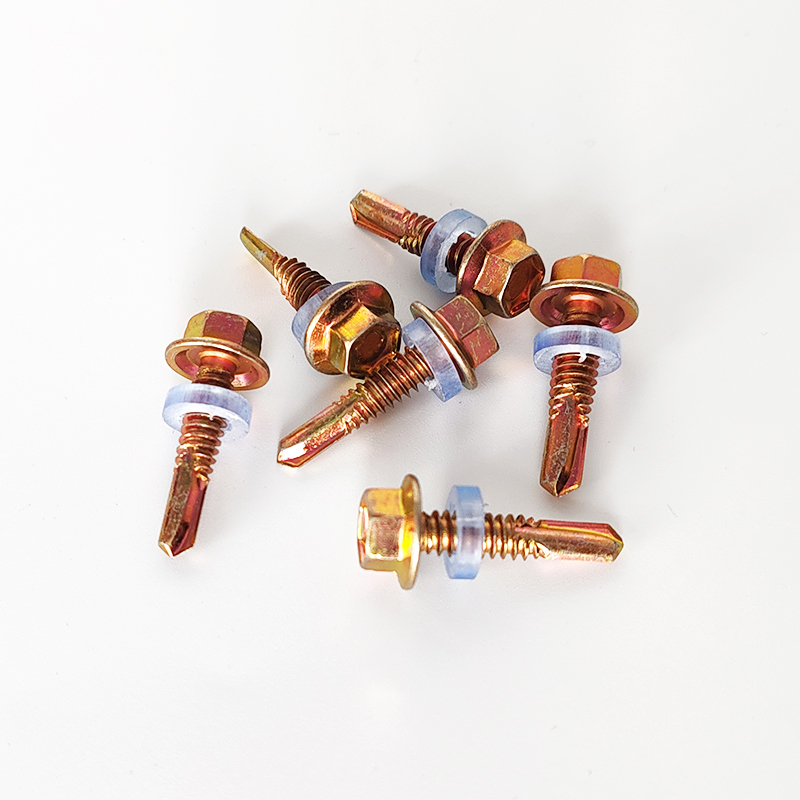drywall screws 2 1 2
Understanding Drywall Screws The Essential Guide
Drywall screws, commonly referred to as drywall fasteners, are a specialized type of screw used primarily in the installation of drywall panels. They are designed to hold the drywall securely in place while providing a smooth and tidy finish for interior walls and ceilings. This article delves into the intricacies of drywall screws, including their types, materials, sizes, and installation techniques.
Types of Drywall Screws
Drywall screws are generally categorized into two main types based on their thread design coarse thread screws and fine thread screws.
1. Coarse Thread Screws These screws are typically used for attaching drywall to wooden studs. They feature larger threads that grip the wood more effectively, reducing the likelihood of the screw stripping or pulling out. Coarse thread screws are most commonly found in 1 1/4-inch to 2-inch lengths.
2. Fine Thread Screws Designed for use with metal studs, fine thread screws have tighter threads and provide a firm hold on the metal without tearing it. These screws are often available in similar lengths as coarse thread screws but are particularly beneficial when working with metal framing due to their ability to penetrate metal easily.
Materials and Coatings
Drywall screws are often constructed from steel, which provides durability and strength. However, they can also come with various coatings to enhance their performance and resistance to corrosion.
- Black Phosphate Coating This is one of the most common finishes found on drywall screws. It helps prevent rust, especially in humid conditions, while providing a more aesthetic appearance.
- Zinc Plating Zinc-coated drywall screws offer excellent corrosion resistance and are especially suitable for environments with high moisture levels.
- Galvanized Screws These screws are coated with a thicker layer of zinc, enhancing their durability and moisture resistance, making them ideal for outdoor or high-humidity applications.
Important Sizes
drywall screws 2 1 2

When it comes to choosing the right size of drywall screws, it’s essential to consider the thickness of the drywall and the type of studs being used. Common drywall thicknesses are 1/2 inch and 5/8 inch, and selecting the right screw size ensures optimal hold and stability.
1. 1 1/4 inch screws Ideal for attaching 1/2 inch drywall to wood studs.
2. 1 5/8 inch screws Suitable for 5/8 inch drywall installation on wood studs.
3. 2 inch screws Commonly used for attaching drywall to metal studs or thicker drywall applications.
Installation Techniques
Proper installation of drywall screws is crucial for achieving a professional finish. Here are some best practices
1. Spacing The typical spacing for drywall screws is 16 inches apart along the edges and 24 inches apart in the field (the central area of the drywall).
2. Driving Depth When inserting screws, they should be driven until the head is slightly recessed beneath the surface of the drywall. This helps ensure that the screw does not interfere with the drywall finishing process.
3. Avoiding Damage It is important to avoid driving screws too deep, as this can damage the drywall and compromise the integrity of the installation. A depth-setting guide can be useful to ensure consistent results.
Conclusion
Drywall screws may seem like a small, insignificant element in the construction and remodeling process, but their importance cannot be overstated. They provide the essential connection between drywall panels and the framing structure, ensuring a safe and durable finish. Understanding the different types, materials, sizes, and proper installation techniques helps DIY enthusiasts and professionals alike achieve the best results in their drywall projects. Whether you are building new walls or renovating old ones, investing time in selecting the right screws will ultimately lead to a more polished and enduring outcome. With the right knowledge under your belt, you are well on your way to mastering the art of drywall installation.
-
Weatherproof Plastic Expansion Anchors for OutdoorNewsJun.06,2025
-
Sustainability in the Supply Chain: Eco-Friendly TEK Screws ProductionNewsJun.06,2025
-
Load-Bearing Capacity of External Insulation FixingsNewsJun.06,2025
-
Double Head Bolts: Enhancing Efficiency in Industrial MachineryNewsJun.06,2025
-
Corrosion Resistance in Chipboard Screws: Coatings for Wholesale DurabilityNewsJun.06,2025
-
Butterfly Toggle Bolts : Enhancing Structural ResilienceNewsJun.06,2025
